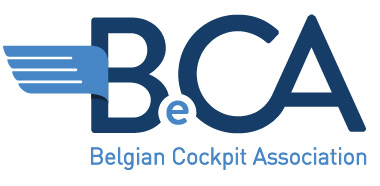Just Culture & Occurrence Reporting
 | What? | A culture in which front-line operators or other persons are not punished for actions, omissions or decisions taken by them that are commensurate with their experience and training, but in which gross negligence, willful violations and destructive acts are not tolerated |
Why? | If pilots feel punished for honestly reporting occurrences, hazards may no longer be identified jeopardising our current safety record. | |
How? | BeCA will relentlessly defend the Just Culture principle at organisational, Belgian and international level by providing support to members who are treated unjust and interacting with airline management, BCAA, judiciary, unions, experts and other stakeholders. |
Just Culture
 Let’s look at the first pillar of SMS: Safety Policies and Objectives. One of the pre-requisites for an effective SMS is top-level commitment i.e. the company management should share a dedicated view on safety. A pre-requisite for this is the acceptance that – despite all training, procedures, protocols – human error is unavoidable. However, this does not mean that we should not learn from lapses, slips, errors and mistakes! On the contrary. They are a valuable source to identify hazards (and eventually manage the risk). Therefore it is a requirement to have a so-called Safety Policy. Herein the Accountable Manager agrees to provide sufficient resources (funds and personnel) for safety management and he/she also agrees to act according to Just Culture principles. This means ensuring that no action will be taken against any employee who discloses a safety concern through the hazard reporting system, unless such disclosure indicates, beyond any reasonable doubt, gross negligence or a deliberate or willful disregard of regulations or procedures (intentional violation). In other words: “If you made a mistake, we will not blame you unless it is clear that you did it on purpose and with the intention to harm.”
Let’s look at the first pillar of SMS: Safety Policies and Objectives. One of the pre-requisites for an effective SMS is top-level commitment i.e. the company management should share a dedicated view on safety. A pre-requisite for this is the acceptance that – despite all training, procedures, protocols – human error is unavoidable. However, this does not mean that we should not learn from lapses, slips, errors and mistakes! On the contrary. They are a valuable source to identify hazards (and eventually manage the risk). Therefore it is a requirement to have a so-called Safety Policy. Herein the Accountable Manager agrees to provide sufficient resources (funds and personnel) for safety management and he/she also agrees to act according to Just Culture principles. This means ensuring that no action will be taken against any employee who discloses a safety concern through the hazard reporting system, unless such disclosure indicates, beyond any reasonable doubt, gross negligence or a deliberate or willful disregard of regulations or procedures (intentional violation). In other words: “If you made a mistake, we will not blame you unless it is clear that you did it on purpose and with the intention to harm.”
Just Culture is of paramount importance. Without justness, safety professionals will never have the full picture. No one will write a report about their own mistakes if there is even the slightest fear of being sanctioned. The consequence is that hazards will remain hidden waiting to be a cause or a contributing factor for future incidents and/or accidents.
As an example and contrary to popular belief: FDM is NOT an exact science. The system does not tell the story behind. Was there any turbulence? Were there any CRM issues? Fatigue? ATC pressure? Other traffic? What was the aircraft technical status before the flight? Etc. Therefore we need uninhibited voluntary reporting without fear of reprisal.
Safety Culture
Apparently, EASA and the EC share this opinion. EU regulation 376/2014 (on the reporting, analysis and follow-up of occurrences in civil aviation) mentions the term not less than 11 times and sees it as ‘an essential element of a broader safety culture’. Somebody told me once: “A Safety Culture is what remains if you take away all SOPs” So imagine that tomorrow your fleet chief asks you to perform a flight and he tells you to throw away all books; to do whatever you want. Will you still use the checklist? Will you still wait for the Cabin ready call? Probably yes. This is all part of our inherent will to do our job in the safest way possible; not in the least out of some instinct of self-preservation. You could also see it as the attitude towards safety. Professor James Reason (yep, the cheese guy) recognizes different aspects in a Safety Culture: informed, reporting, learning, flexible and just culture.
Just Safety Culture
However here at BeCA we mixed the terms and we talk about Just Safety Culture (JSC), because we are convinced that the other aspects will follow automatically as soon as there is an open and honest atmosphere.
The goals of JSC are simple:
- Encourage reporting
- Establish facts to avoid them reoccurring
- Learn from mistakes to improve safety
- Implement a dynamic safety management system
- Show “sleeping failures”
 JSC is NOT
JSC is NOT
- A piece of paper in an OPS Manual
- A slogan in an email
- A “top-down” concept
- Limited to the (Flight) Safety department
- Taken for granted
 JSC is
JSC is
- Applicable in all circumstances
- Part of company global culture and ethical values
- Undermined by unjustified blame attitudes
- Must be encouraged and valued by all
- A partnership approach with crews
- Fragile, an everyday challenge
Reality check
Unfortunately, the reality isn’t always in line with the theory. Until EU regulation 376/2014 came into force on 15 November 2015, there are no hard laws; only company statements, beliefs and practices. It is impossible to talk about Just Safety Culture without a clear definition of intentional violations. A non-accusative and respectful approach towards crew and personnel is now mandatory. All in all, it is a very fragile equilibrium.
So far we have seen examples of non-adherence at different levels:
- Often, CEOs do not really understand/actively support advanced JSC
- Safety Managers are not always independent and not kept in the loop by other managers or lack resources (team size & experience)
- When HRs involved, JSC often turns into disciplinary measures. In our opinion cases of gross negligence should be transferred to HR only after careful analysis of facts, based on clear evaluation criteria (e.g. JSC flow chart)
- JSC must be everywhere. Sometimes we heard: “Yes, but this event falls outside JSC”
- In case of an accident, external parties might not adhere to JSC logic: insurance, justice department, victims and their relatives, public, media/press, airline shareholders,…
What does BeCA do?
As a pilots association, we support members, airlines and authorities in understanding and implementing a true Just Safety Culture. BeCA aims to provide support in personal incidents, drafting a (common) FDM agreement and/or Just Safety Charter, assembling event review boards, explaining new legislation, etc.
BeCA actively supports the on-going efforts with regards to implementing a Just Culture at the national level in Belgium as required by EU 376/2014. Much work has been done, but until our country has set up Advance Arrangements between the judiciary and the BCAA (Belgian Civil Aviation Authorities) and creates a National Body for appealing Just CUlture decisions at the organisational level, the job is not finished.
As an active member in the ECA Flight Data Working Group, BeCA has been at the forefront of developing the new regulation. Furthermore, and thanks to the work of the EUROCONTROL Just Culture Task Force we also raise awareness at the judicial level about the Just Culture concept.

